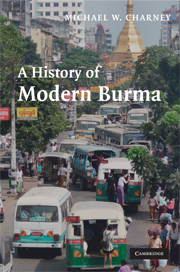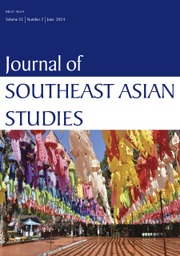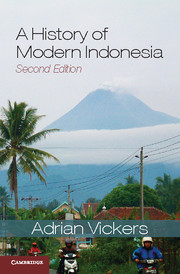A History of Modern Indonesia
Although Indonesia has the fourth largest population in the world, its history is still relatively unfamiliar and understudied. Guided by the life and writings of the country's most famous author, Pramoedya Ananta Toer, Adrian Vickers takes the reader on a journey across the social and political landscape of twentieth-century Indonesia in this innovative and timely account. He begins by explaining the country's origins under the Dutch in the early part of that century, the subsequent anti-colonial struggle and revolution which led to independence in 1949. Thereafter the spotlight is on the 1950s, a crucial period in the formation of Indonesia as a new nation, which was followed by the Sukarno years, and the anti-communist massacres of the 1960s when General Suharto took over as president. The concluding chapters chart the fall of Suharto's New Order after thirty two years in power, and the subsequent political and religious turmoil which culminated in the Bali bombings in 2002. Drawing on insights from literature, art and anthropology, Adrian Vickers portrays a complex and resilient people borne out of a troubled past.
- A colourful and fascinating trawl through the highs and lows of Indonesia's history, its politics, and its people
- Author uses the work of Indonesia's most famous novelist as a prism for explaining the cultural nuances of a complex and underexplored society
- This is an up to date, and timely account by one of the premier historians of Indonesia
Reviews & endorsements
"Vickers's Modern Indonesia is no one-thing-after-the-other textbook. Innovatively framed around the writings of Pramoedya Ananta Toer, and invoking the arresting insights of Indonesian novelists and playwrights, it provides a stimulating, fresh understanding of Indonesia's modern, often tragic, trajectory. This is not a book written over the shoulders of nationalist politicians and military officers, but one that evokes the senses, flavours, turmoils and smells of everyday life in that irresistably complicated country." --R.E. Elson, Professor of Southeast Asian history, The University of Queensland
"I think this will become the standard history textbook on Indonesia for introductory classes and it will last because it is so beautifully written. I suspect it will set a new standard also because of the interpretations taken, implicit as they are." -- Gerry van Klinken, H-Asia
Vickers interprets 20th-century Indonesian history through the writings of the Indonesian novelist Pramoedya Ananta Toer. A Marxist, Toer sees the colonial period as oppressive, believes strongly in the hope of the national movement for social revolution, laments the failure of this goal during the early independence period, and strongly opposes the New Order (1966-1998), with its emphasis on development rather than revolution and its authoritarian, militaristic base.
Choice
"Adrian Vickers uses a unique style to provide his readers with a view of twentieth-century Indonesia...A History of Modern Indonesia is a thorough and informative account of Indonesia's history and political development in the twentieth and early twenty-first centuries." - Florence Lamoureux
"Vickers draws a compelling narrative of cogent historical detail, while also incorporating insights from other disciplines such as literature, anthopology, sociology and political science." - Trevor W. Preston, University of Toronto, Canada
"Vickers has written a useful book that provides an entertaining and mostly informative account of a country whose history should be better known." - David Webster, University of Toronto
Product details
February 2006Adobe eBook Reader
9780511133497
0 pages
0kg
20 b/w illus. 7 maps
This ISBN is for an eBook version which is distributed on our behalf by a third party.
Table of Contents
- Introduction: Indonesian history and Pramoedya Ananta Toer
- 1. Our colonial soil: Dutch colonial expansion and the creation of the basis of modern Indonesia in the Netherlands East Indies
- 2. Cultures of the countryside: the lives of peasants and coolies during the colonial period
- 3. 'To Assail the Colonial Machine': urban life and the development of Indonesian nationalism
- 4. The Revolution: the struggle for independence, from the Japanese occupation of 1942 to the achievement of sovereignty in 1949
- 5. Living in the Atomic Age: the 1950s and Sukarno's Guided Democracy
- 6. From Old to New Orders: the build up to the political crisis of 1965, the killings, and the establishment of Suharto's New Order government
- 7. Terror and development in Happy Land: the New Order from the late 1970s until the 1990s
- 8. Age of globalisation, age of crisis: the last years of the New Order, the fall of Suharto and the period of democratic reform.










